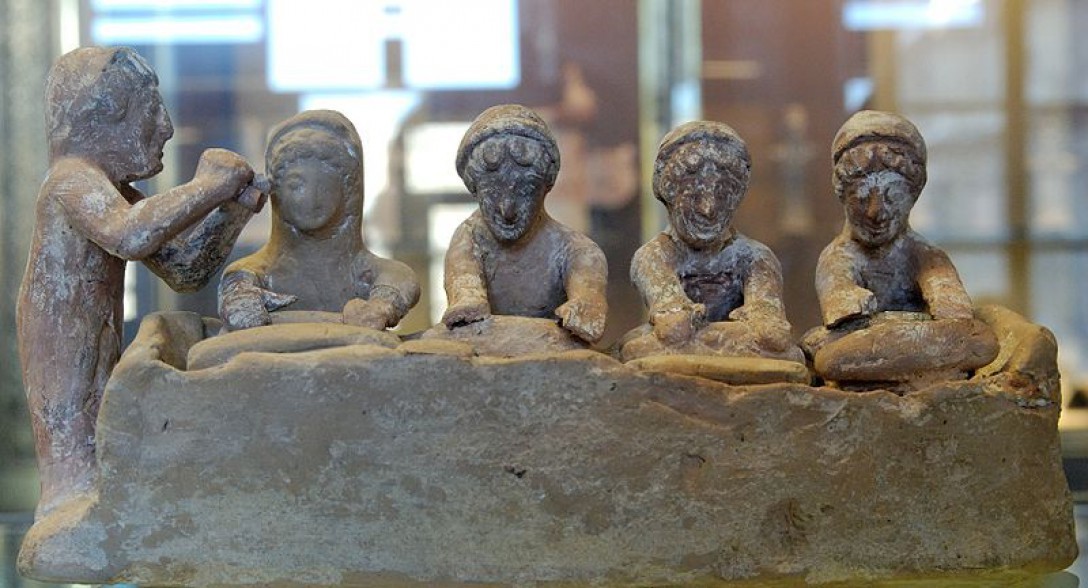 |
| Monastery of Vatopedi. The dining room.
(Photo credit: http://www.orthodoxos.com.gr/phpBB3/viewtopic.php?t=1884#p7510) |
According to Evergetis , its monks were to eat fish on this feast if it was sent by benefactors, but the item was not to be procured deliberately. Leftovers were to be consumed freely on the following day, but if there were none, the monks were to be given two dishes prepared with olive oil instead. If the feast fell during the first week of Lent, however, the festal concession would be reduced to wine of the larger measure and gruel. If the feast fell during the first three days of Holy Week, the monks would be allowed shellfish and wine of the larger measure in preference to the usual diet of legumes soaked in water, raw vegetables, fruit, and cumin- flavored water. In a controversial position, Evergetis declares, “we will do everything appropriate for the feast even if it should fall on Holy Thursday, or Good Friday, or even holy Easter Eve itself.”
Kosmosoteira , faithfully follows these provisions of its Evergetian model. Phoberos mostly does so also, but restricts the consumption of leftovers from the feast on fast days and omits Easter Eve from the list of days in Holy Week when it must be celebrated. Kecharitomene permits a celebration with shellfish during Holy Week only on Monday, Tuesday, or Thursday (i.e., the non-fast days). Should the feast occur on Wednesday or on Good Friday, the nuns were to be content with cooked legumes and vegetables accompanied by olive oil. The Easter Eve fast was not to be broken. Mamas , followed by Heliou Bomon, makes similar provision for occurrences during Holy Week, but permits wine of the greater measure as a consolation on those days when cooked legumes had to be served for the feast in lieu of shellfish. Pantokrator is not much different, permitting celebration by consumption of fish at any time in Lent, including on Holy Thursday, except during the weekdays of the first week of Lent and the other days of Holy Week. If the feast occurred during a day during Holy Week when fish could not be consumed, the monks were to have the consolation of the use of wine and olive oil.
The usually strict Kasoulon is uncharacteristically lenient on this issue, providing for a three-day feast (March 24-26) featuring food prepared with olive oil and good wine, with no discussion of possible exceptions to its celebration. The usual exception for Holy Week is found in Machairas , however, when its monks were to be content with legumes, fresh vegetables, seasonal fruits, and hot water flavored with honey and cumin, though an occurrence on Holy Thursday, Good Friday, or Holy Saturday would be marked by serving wine of the customary allotment.”
Byzantine Monastic Foundation Documents: A Complete Translation of the Surviving Founders’ Typika and Testaments edited by John Thomas and Angela Constantinides Hero with the assistance of Giles Constable Published by Dumbarton Oaks Research Library and Collection Washington, D.C.
Appendix B
The Regulation of Diet in the Byzantine Monastic Foundation Documents
p. 1707-8

